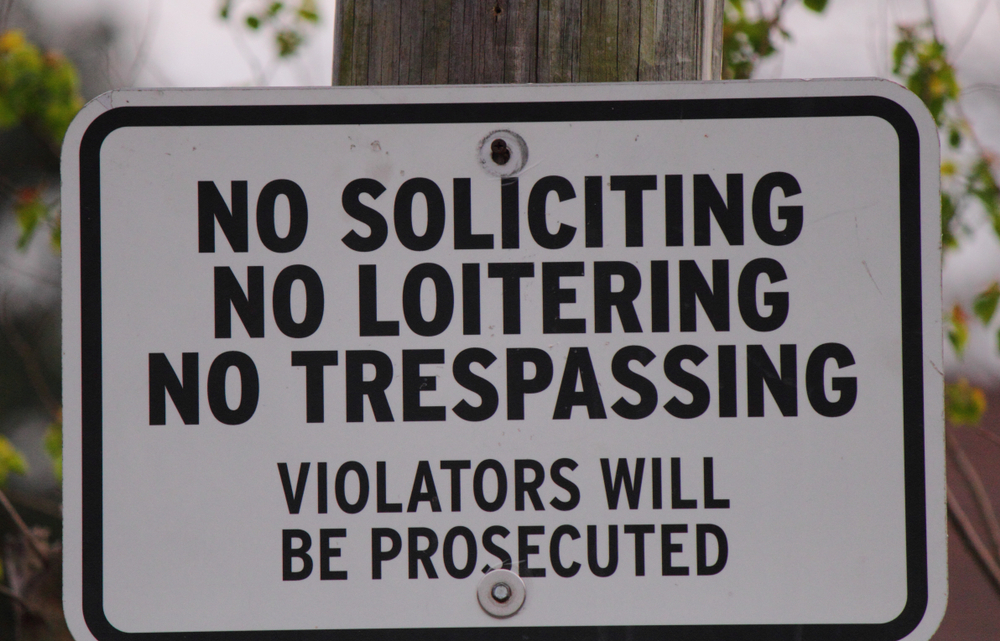Navigating “No Soliciting” signs requires a respectful and nuanced approach, especially if your goal involves sales, canvassing, or promoting a cause.
Here are several strategies that might be effective, while still respecting the intent of these signs…
1. Research and Preparation
- Understand Legal Definitions – Know the legal definition of soliciting in your area. Some places may differentiate between commercial soliciting (selling products or services) and non-commercial soliciting (religious or political canvassing).
- Target Wisely – Focus your efforts on areas without “No Soliciting” signs or seek neighborhoods and communities known to be more receptive to your message or products.
2. Approach with Respect
- Respect the Sign – When you encounter a “No Soliciting” sign, it’s generally best to respect the homeowner’s wishes. Ignoring these signs can lead to negative interactions, complaints, or even legal action.
- Seek Permission – In cases where you have a compelling reason to engage, consider seeking permission from a homeowners’ association, building manager, or directly from individuals in a respectful manner, explaining clearly why you’re requesting an exception.
3. Utilize Alternative Methods
- Digital Outreach – Leverage social media, email marketing, and other online platforms to reach potential customers or supporters. This approach respects individual preferences and avoids the direct solicitation issue.
- Networking and Referrals – Build your network through referrals and word-of-mouth. Satisfied customers or supporters can be your best advocates, bypassing the need for cold visits.
- Community Events – Participate in local community events, fairs, and markets where people are more open to new information, products, and services.
4. Adapt and Innovate
- Offer Value – Ensure that your message or product clearly offers value. People are more likely to engage if they see a direct benefit or if their curiosity is piqued.
- Educational Approach – Sometimes, framing your visit as an educational opportunity rather than a direct solicitation can be more effective, especially if you’re promoting energy efficiency, environmental conservation, or a community initiative.
5. Legal Compliance
- Comply with Local Regulations – Always make sure you’re aware of and comply with local laws and ordinances related to solicitation. Some areas require permits or have specific restrictions.
6. Ethical Considerations
- Ethical Marketing – Focus on ethical marketing strategies that prioritize the needs and interests of the community and potential customers. Building a positive reputation can lead to long-term success beyond immediate sales or support.
“No Soliciting” signs are placed by individuals or communities seeking to maintain their privacy and avoid interruptions. The most successful and sustainable approaches to getting around these signs involve respect, creativity, and a focus on building genuine relationships rather than seeking immediate transactions.





